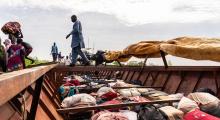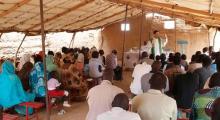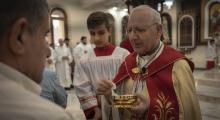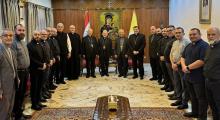Issued by the Catholic Center for Studies and Media - Jordan. Editor-in-chief Fr. Rif'at Bader - موقع أبونا abouna.org
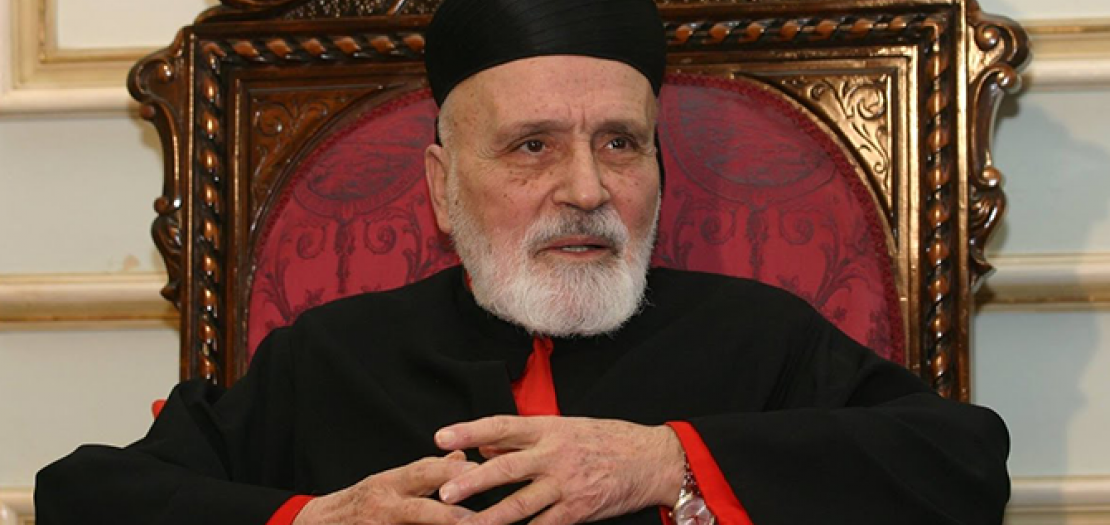
Lebanon's former Maronite patriarch Nasrallah Boutros Sfeir passed away on Sunday, said the church.
Sfeir, who was about to turn 99 on May 15, died at 3:00am (0100 GMT) "after days of intensive medical care," said a statement by the Maronite church.
He became the leader of the church in 1986 until he resigned in 2011 due to his declining health, and held the title "76th Patriarch of Antioch and the Whole Levant".
He was a respected power broker during the 1975-1990 civil war, which saw bitter infighting between rival militias including opposing Christian factions.
Sfeir, who spoke fluent Arabic and French, was made a cardinal by Pope John Paul II in 1994.
Cardinal Beshara al-Rahi, who succeed Sfeir in 2011, called on churches to ring their bells and hold prayers for the late leader.
President Michel Aoun said that the church lost one of its greatest patriarchs with Sfeir’s passing.
He hailed his national stances and defense of Lebanon’s sovereignty, independence and people during Lebanon’s most dire moments, crediting him with bolstering national partnership.
Prime Minister Saad Hariri offered his condolences to the church over Sfeir’s passing.
Sfeir embodied spiritual and national values during a critical time of Lebanon’s history, he added. “He became a national symbol through his firm and brave stances that inevitably helped change the course of events.”
Born in 1920 in Rayfoun, a village in Lebanon's Keserouan mountains, Sfeir studied theology and philosophy but was never shy to delve into Lebanon's tumultuous politics.
His backing of the 1989 Taif agreement that brought the 15-year civil war to an end bolstered Christian support for the accord, but reduced the powers of the presidency -- a seat reserved for Lebanon's Maronite Christians under the country's confessional power-sharing.
Sfeir also spearheaded the opposition to Syria's three decades of military and political domination over Lebanon.
"His biggest struggle was to end the Syrian presence in Lebanon, which we all thought was impossible because of the divisions in Lebanon," his biographer Antoine Saad told AFP.
"But he worked on it steadily, objectively, meticulously and quietly," he said.
Sfeir refused to visit Syria during his time as patriarch, even when John Paul II made a trip to the country in 2001.
His outspokenness helped swell the anti-Syria movement in 2000.
It eventually lead to the withdrawal of thousands of Syrian troops from the country five years later, following the assassination of former Prime Minister Rafik Hariri, whose murder the opposition blamed on Damascus.
Sfeir's opinion and advice continued to be sought by politicians of all stripes, not only Christians, after he stepped down.
"He was completely against war," Saad said of the cleric who enjoyed hiking in nature until his late years.
"His loss can't be compensated for."



